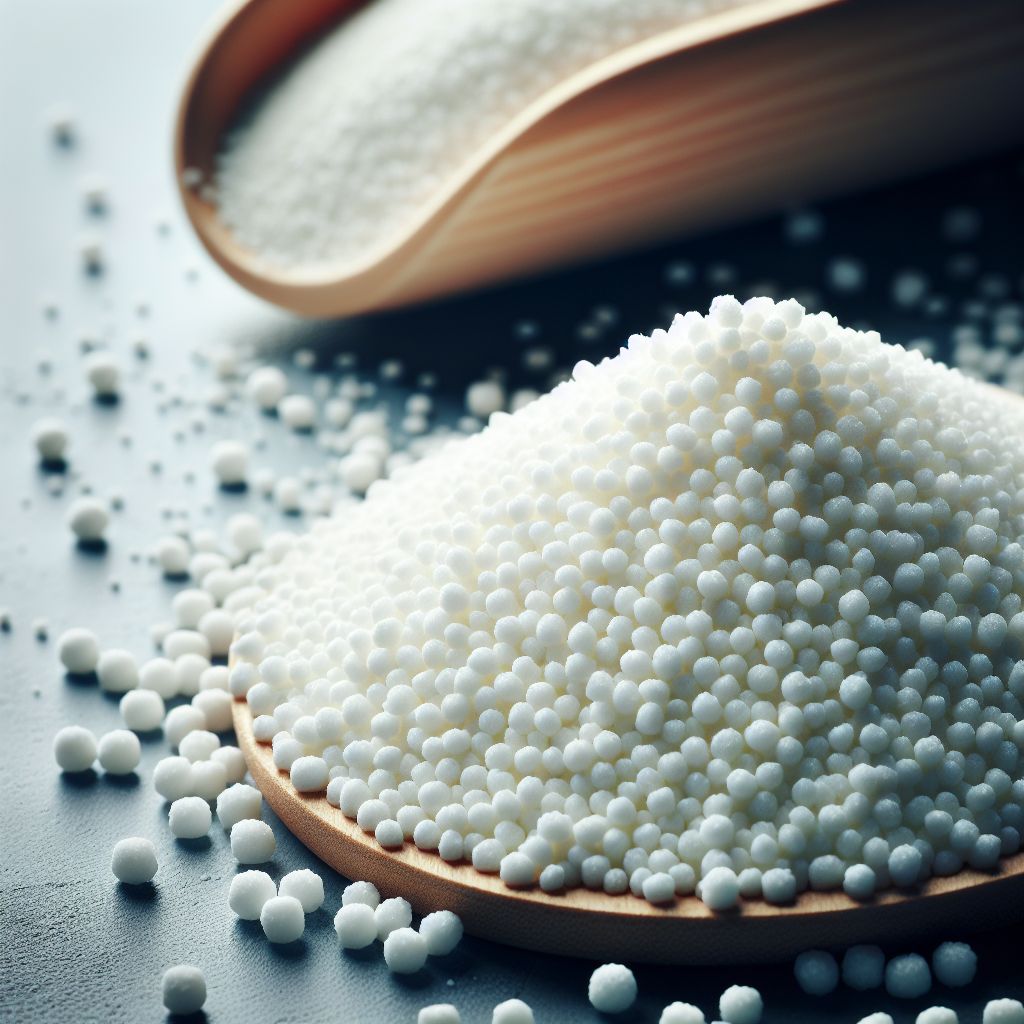
Key Takeaways: Corn Starch in Skincare
-
Corn starch is a natural ingredient that helps control oiliness and shine on the skin.
-
It can be used as a gentle exfoliant and a soothing agent for irritated skin.
-
Corn starch is a safer alternative to talcum powder in cosmetic products.
-
DIY skincare enthusiasts can use corn starch to create homemade beauty treatments.
-
Understanding the science behind corn starch can help you make informed skincare choices.
My favorite Holistic Skincare Products
Arbonne, a leader in the health and wellness industry for over 40 years, remains dedicated to clean beauty and sustainability, prioritizing people and the planet in every decision as evidenced by their Certified B Corporation status.
You can buy Arbonne Skincare Products here.
Shine-Free and Soft: How Corn Starch Beautifies Your Skin
If you’ve ever felt the annoyance of an oily T-zone as the day progresses, you know the struggle of keeping your skin matte. Corn starch, with its remarkable oil-absorbing properties, can be a game-changer. It’s like a natural blotting paper that soaks up excess oil without clogging your pores. This means a smoother, shine-free complexion that feels fresh all day long.
Oily Skin Savior
For those with oily skin, the battle against the midday shine is real. But here’s the deal: a light dusting of corn starch can mattify your skin in a flash. Just apply a thin layer over your usual moisturizer or makeup, and you’re set. Remember, a little goes a long way, so start with a small amount to avoid a chalky look.
Gentle Exfoliator and Soother
Exfoliation is crucial for removing dead skin cells and revealing brighter skin, but it doesn’t have to be harsh. Corn starch is gentle enough for even the most sensitive skin types. Mix it with a bit of water to form a paste, then massage onto your face in circular motions before rinsing. You’ll be left with skin that’s not only smooth but also soothed, thanks to corn starch’s calming properties.
But it’s not just about looking good. If you’ve ever experienced skin irritation or a sunburn, you know the discomfort that comes with it. Corn starch can help. A cool compress with a corn starch solution can provide relief and reduce redness. This is because corn starch helps to draw out heat and calm inflammation.
Nature’s Answer to Talc: The Safer Choice
In the world of skincare, safety is as important as effectiveness. Talcum powder has been a staple in cosmetic products for decades, but recent concerns about its safety have left many searching for alternatives. Enter corn starch, a plant-based powder that offers similar benefits without the potential health risks.
Talc vs. Corn Starch: Understanding the Difference
Let’s break it down. Talcum powder is made from talc, a mineral that can contain asbestos fibers, which are known to cause cancer. Corn starch, on the other hand, is derived from corn kernels and is free from these harmful contaminants. That’s a big deal, especially if you’re using it daily as part of your skincare routine.
Besides that, corn starch is biodegradable and environmentally friendly, which is a win for both your skin and the planet. So when you’re choosing between talc and corn starch, you’re not just making a choice for your health today; you’re making a choice for the future.
Why Corn Starch is Gaining Popularity in Skincare
There’s a growing trend towards natural and sustainable beauty products, and corn starch fits the bill perfectly. Its gentle nature makes it suitable for a wide range of skin types, and it’s easy to find in its pure form, free from additives and fragrances that can irritate sensitive skin.
And let’s not forget the versatility. Whether you’re using it to control oil, soothe irritation, or even as a setting powder for your makeup, corn starch is proving to be a multitasking hero in the world of skincare. It’s no wonder that more and more people are reaching for this pantry essential to enhance their beauty routine.
|
Benefit/Property |
Description |
|---|---|
|
Skin Yeast Infection |
Cornstarch acts as a natural drying agent, soothing skin irritation and itchiness caused by yeast infections. It helps combat moisture and sweat, preventing yeast growth |
|
Skin Breakout Prevention |
Beneficial for acne-prone skin, cornstarch absorbs excess oil, removes impurities from pores, and prevents outbreaks |
|
Skin Whitening |
Used for instant lightening and whitening, cornstarch erases dark spots, pigmentation, brightens skin tone, stimulates cell regeneration, and promotes overall skin health |
|
Skin Allergy Relief |
Cornstarch soothes skin irritation, treats various skin allergies like sunburn, bug bites, and irritations. It gradually dries allergies, relieves itching without causing irritation |
|
Skin Fungus Prevention |
Rich in vitamins A, B1, and B2, cornstarch aids in drying the skin to prevent fungal attacks. Its antioxidant properties combat fungi growth and prevent their thriving |
|
Natural & Safe Components |
Cornstarch offers gentle, safe, natural components for hair care with health benefits for the scalp and hair. It absorbs oil, refreshes hair, is affordable, adaptable, versatile, and eco-friendly |
|
Sustainable & Eco-friendly |
Being renewable, biodegradable, adaptable with low environmental impact makes cornstarch a sustainable choice for hair care products. It promotes a greener lifestyle |
|
Avoiding Product Build-up |
Proper application and distribution of cornstarch are crucial to avoid over-application and build-up. Concentrating on roots or oily areas helps prevent product build-up and scalp irritation |
|
Gluten-Free |
Pure cornstarch is gluten-free. However, cross-contamination can occur if equipment used processes both corn starch and gluten-containing grains |
|
Weight Loss Potential |
High amylose corn starch may have a slow glycemic response that could aid in reducing appetite, increasing satiety, and potentially reducing overall energy intake for weight management |
|
Allergy Consideration |
Individuals with corn allergies should avoid cornstarch. Cornstarch is generally safe when consumed as food but may cause allergic reactions in sensitive individuals |
These benefits and properties of corn starch for skincare highlight its diverse uses in promoting healthy skin and hair care while emphasizing its natural, safe, and eco-friendly characteristics.
DIY Skincare: Crafting Corn Starch Masterpieces
Now, let’s roll up our sleeves and get creative. Crafting your own skincare products can be incredibly satisfying, and with corn starch, it’s also easy and affordable. I’ll walk you through some simple recipes that you can whip up at home. These treatments will cater to different skin needs, using ingredients you probably already have in your pantry.
Simple Recipes for Home Treatments
For a start, let’s make a basic corn starch face mask. You’ll need:
-
2 tablespoons of corn starch
-
Enough water to make a paste
-
A few drops of your favorite essential oil for added benefits and fragrance (optional)
Mix the corn starch with water until you get a smooth paste. If you’re using essential oil, add it now. Apply the mask to your face, avoiding the eye area. Wait for it to dry, then rinse off with warm water. Your skin will feel refreshed and tightened.
If you’re dealing with a sunburn or skin irritation, try a corn starch bath. Just add a cup of corn starch to your bathwater and soak for relief. It’s a simple yet effective way to calm your skin.
Customizing Corn Starch for Your Skin Type
Everyone’s skin is unique, and what works for one person might not work for another. That’s why it’s important to tailor your corn starch treatments to your specific skin type. For instance, if you have dry skin, consider adding a teaspoon of honey to your corn starch mask for its hydrating properties. For acne-prone skin, a dash of turmeric in the mix can provide anti-inflammatory benefits.
And remember, consistency is key. Incorporate these treatments into your regular skincare routine for the best results, but always listen to your skin. If it feels irritated or uncomfortable, take a break and adjust the recipe or frequency of use accordingly.
Behind the Scenes: The Science of Corn Starch
Understanding the science behind corn starch will help you appreciate its role in skincare even more. At its core, corn starch is a carbohydrate extracted from the endosperm of corn kernels. It’s made up of long chains of glucose molecules that have the ability to absorb moisture and oil, similar to how sodium hyaluronate benefits hydrating skincare by moisture retention.
The Chemistry of Corn Starch on the Skin
When applied to the skin, corn starch acts as a barrier, absorbing excess sebum without stripping away necessary moisture. This balancing act is what makes it so effective for oily and combination skin types. It’s also hypoallergenic, making it a safe choice for those with sensitive skin.
Furthermore, corn starch’s molecular structure allows it to form a protective layer over the skin. This can help shield against environmental pollutants and irritants, which is especially beneficial in today’s world where our skin is constantly exposed to various stressors.
Research on Long-Term Benefits and Effects
While the immediate benefits of corn starch are clear, you might wonder about its long-term effects. Studies have shown that using corn starch as part of a skincare routine does not pose significant risks and can help maintain healthy, balanced skin over time.
However, it’s important to use it correctly. Overuse of any product, even natural ones like corn starch, can lead to irritation. Always patch test any new treatment to ensure your skin reacts well, and never substitute it for medical advice or prescribed treatments if you have skin conditions.
The Multipurpose Marvel: From Kitchen to Cosmetic Bag
It’s fascinating how a simple ingredient can transition from the kitchen to the forefront of natural skincare. Corn starch is not just a thickener for your culinary creations; it’s a versatile beauty ally that deserves recognition.
Finding Quality Corn Starch for Skincare
When selecting corn starch for your skincare, opt for the purest form you can find. Organic corn starch is ideal because it’s free from pesticides and other chemicals that could potentially harm your skin. Check the labels to ensure there are no added fillers or preservatives.
Most importantly, the quality of corn starch can vary, so it’s worth doing a bit of research to find a reputable brand. Read reviews, ask for recommendations, and once you’ve found a product you trust, stick with it for consistent results.
Versatile Uses Beyond Oil Control
Corn starch is more than just an oil-absorber. It’s also a fantastic base for homemade deodorants, a dry shampoo for those in-between wash days, and even a natural remedy for soothing bug bites and rashes. Its versatility is truly impressive, and with a bit of experimentation, you’ll find even more ways to incorporate it into your beauty regimen.
Remember, the beauty of DIY skincare is that you have control over what goes on your skin. By choosing corn starch, you’re opting for a natural, safe, and effective ingredient that won’t break the bank. Give it a try, and you just might be surprised at how much your skin loves it.
FAQ: Nurturing Your Skin with Corn Starch
Now, let’s address some common questions about incorporating corn starch into your skincare routine. Armed with the right knowledge, you can confidently make corn starch a part of your beauty arsenal.
Can Corn Starch Replace Commercial Skincare Products?
Corn starch can be a great addition to your skincare routine, but it’s not a complete replacement for commercial skincare products. Think of it as a complementary ingredient. It’s excellent for oil control and soothing skin, but you’ll still need cleansers, moisturizers, and sunscreens formulated to meet your skin’s specific needs.
Is Corn Starch Safe for All Skin Types?
-
Yes, for most people, corn starch is safe and can be beneficial for all skin types.
-
However, if you have a corn allergy, you should avoid using corn starch on your skin.
-
Always conduct a patch test before using a new product or ingredient on your skin to check for any adverse reactions.
It’s essential to listen to your skin. If you notice any redness, itching, or irritation after using corn starch, discontinue use immediately and consult a dermatologist if necessary.
For those with sensitive skin, corn starch can be a soothing alternative to other harsher ingredients. And for oily skin types, its mattifying properties can be a game-changer. Just remember that everyone’s skin is unique, and what works for one person may not work for another.
How Often Should You Use Corn Starch in Your Skincare Routine?
Using corn starch too frequently can dry out your skin, so moderation is key. Start by using it once or twice a week and observe how your skin responds. If your skin remains comfortable and the results are positive, you can gradually increase the frequency. But if you experience any dryness or discomfort, scale back or take a break.
The goal is to find a balance that keeps your skin feeling fresh without overdoing it. And always remember to hydrate your skin with a good moisturizer after using corn starch treatments.
Can You Use Corn Starch on Acne-Prone Skin?
Yes, corn starch can be used on acne-prone skin as it absorbs excess oil, which can contribute to breakouts. However, it’s not an acne treatment by itself. While it can help manage oiliness, you should still use acne treatments recommended by your dermatologist to address the underlying causes of acne.
And, as always, patch test first to ensure that corn starch doesn’t irritate your skin or exacerbate your acne. If you’re uncertain, consult with a skincare professional before adding it to your routine.
Are There Sustainable and Organic Sources of Corn Starch?
Indeed, there are sustainable and organic sources of corn starch available on the market. Here’s what to look for:
-
Organic certification: This ensures that the corn starch is produced without the use of synthetic pesticides and fertilizers.
-
Non-GMO labels: Many consumers prefer non-GMO corn starch for personal or environmental reasons.
-
Sustainable farming practices: Some brands are committed to sustainable agriculture, reducing their impact on the environment.
By choosing organic and sustainably sourced corn starch, you’re not only making a healthier choice for your skin but also supporting environmentally friendly practices.



